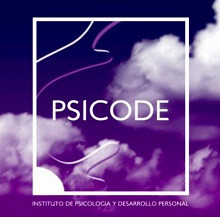In psychology, there are concepts that, being complex and presenting many facets, can overlap in some aspects and be confused by the general public. This is the case of perfectionism and Obsessive-Compulsive Disorder (OCD), which have some characteristics in common but must be distinguished due to the numerous aspects in which they differ.
So, In this article we will see what are the most important differences between perfectionism and OCD and in what ways they affect the life of those who experience them firsthand.
Knowing this is very useful, because the lack of information about it can cause perfectionist people to worry for no reason when thinking that they may have OCD, and people who can be diagnosed with OCD, unaware of this disorder, believe that what happens to them is normal and which should not be treated by mental health professionals.
Main differences between perfectionism and OCD
Before seeing what the differences are between Obsessive-Compulsive Disorder and perfectionism, let’s take a general review of the meaning of each of these two terms.
Obsessive-Compulsive Disorder is a psychological disorder that appears in diagnostic manuals used in psychiatry and clinical psychology, and its symptoms have components of anxiety and difficulties in impulse control (although it does not belong to the category of anxiety disorders or impulse control disorders).
Specifically, people with OCD experience intrusive thoughts that cause discomfort and distress, and they try to dispel them by carrying out compulsions, stereotyped and repetitive actions similar to small rituals and whose objective is to make these mental images disappear.
OCD can be expressed through many types of obsessions and a wide variety of compulsions Examples of the latter are washing your hands many times in a row, walking alone along certain tiles around the same room, closing a door many times, etc.
On the other hand, for one to be able to speak of Obsessive-Compulsive Disorder, these obsessions and compulsions must appear very frequently and produce significant damage to the person’s quality of life, which often even has an impact on their Physical Health.
On the other hand, perfectionism is a category that has not been defined by consensus among researchers in the world of psychology and is not part of the entries in diagnostic manuals, and indicates a tendency to do things being very faithful to the plans and objectives established in advance.
That said, let’s look at the differences between perfectionism and Obsessive-Compulsive Disorder.
1. OCD is always harmful, perfectionism is not
As we have seen, Obsessive-Compulsive Disorder always produces discomfort, whether due to health problems or the expenditure of time and resources on rituals that do not provide any objective well-being, beyond dissipating the discomfort in the short term. (which is also induced by this disorder).
On the other hand, although perfectionism can cause many problems if it occurs to a very high degree, and can even contribute to the state of health deteriorating quickly, this does not have to be the case in all cases. In certain situations, perfectionism is an advantageous trait , and in others, no; depends on the context.
2. In OCD there are repetitive rituals
The main characteristic of OCD, and one of the clearest differences between this disorder and perfectionism, is that leads the person to perform very specific and repetitive rituals , which are always put into practice in the same way. In fact, if on occasion a new element appears in the performance of these compulsions, people with OCD tend to interrupt the sequence and start again.
The repetitive nature of compulsions is independent of the context, it always arises in the same way, so that a person who observes these rituals will already know what the next ones will be like.
Instead, In perfectionism, rigidity is not present so literally It is true that perfectionist people adopt behavioral patterns linked to discipline, but this is a rigidity that makes sense to reach a medium or long-term goal; Discipline itself is not valued so much, but rather what discipline allows us to achieve. Which leads us to talk about the following difference between perfectionism and OCD.
3. In OCD the goal of the compulsions is always the same; in perfectionism, no
Perfectionist people are perfectionists in many areas of their lives, since they aspire to achieve ambitious goals through it, on the one hand, or an order that allows them to use their time and resources efficiently in all the things they can do in the day to day.
On the other hand, when people with OCD experience the anxiety-producing effects of this psychological alteration, the purpose they have in mind when carrying out their rituals to purge discomfort is always only one: stop feeling bad at that moment, or prevent a specific situation from occurring that would be catastrophic , and which tends to always be the same (normally, both phenomena occur at the same time). The goal is always to get away from something bad, and more specifically, something bad that is always the same or almost the same.
For example, a perfectionist may clean his kitchen every day before going to sleep so as not to have problems the next day finding cutlery or clearing a part of the table for eating, or simply because he understands that the default state of the kitchen is the cleaning, but a person with OCD will clean it for fear that the area will be filled with cockroaches in a matter of minutes, and they will always do it following the same order.
4. In OCD there is magical thinking, and in perfectionism, not always
Those who experience OCD perform compulsions because they implicitly believe that these rituals will serve to prevent something bad from happening or an unpleasant circumstance from ceasing to have an effect. He may recognize that rationally this doesn’t make sense, but he feels that if he doesn’t do it, something will go wrong. Therefore, in practice falls into superstitious approaches (at least for that aspect of life, not necessarily others).
On the other hand, in perfectionism, magical thinking does not necessarily have to occur, since there are objective reasons to think that doing things while being faithful to a plan brings benefits when it comes to achieving something.
How to seek help for Obsessive-Compulsive Disorder?
As we have seen, OCD is a psychological disorder that always damages the person’s quality of life, and that always worth a visit to the psychologist

At Psicode Institute of Psychology a mental health care center located in Madrid and Alicante and which also offers online therapy, explain that with appropriate psychotherapeutic assistance it is possible to mitigate the symptoms of this mental alteration, even in cases in which it appears at the same time as others. disorders (something relatively common).
The key to treatment is to intervene both in the thoughts and beliefs, as well as in the specific actions and habits of the patients, on the other. From this double path of psychological intervention, promoted by cognitive-behavioral therapy, it is possible to transform the daily life of these people quickly and, although it is rare for all the symptoms to disappear completely, it is possible to begin to live normally.
For example, one of the most frequent tools used to modify the actions of patients with OCD is Exposure and Response Prevention in which the person is trained to get used to not carrying out the compulsion and letting the anxiety dissipate on its own.
Professionals specialized in clinical psychology at the Psicode Institute point out that a good part of the therapy is based on carrying out activities, and not on simply talking to the psychologist, as many people believe. However, psychotherapists guide each patient in a personalized way, so that they are clear at all times what to do and why it makes sense to do it.
On the other hand, in many cases the use of psychotherapy is combined with the administration of psychotropic drugs prescribed by the doctor, at least provisionally, to control the symptoms.









